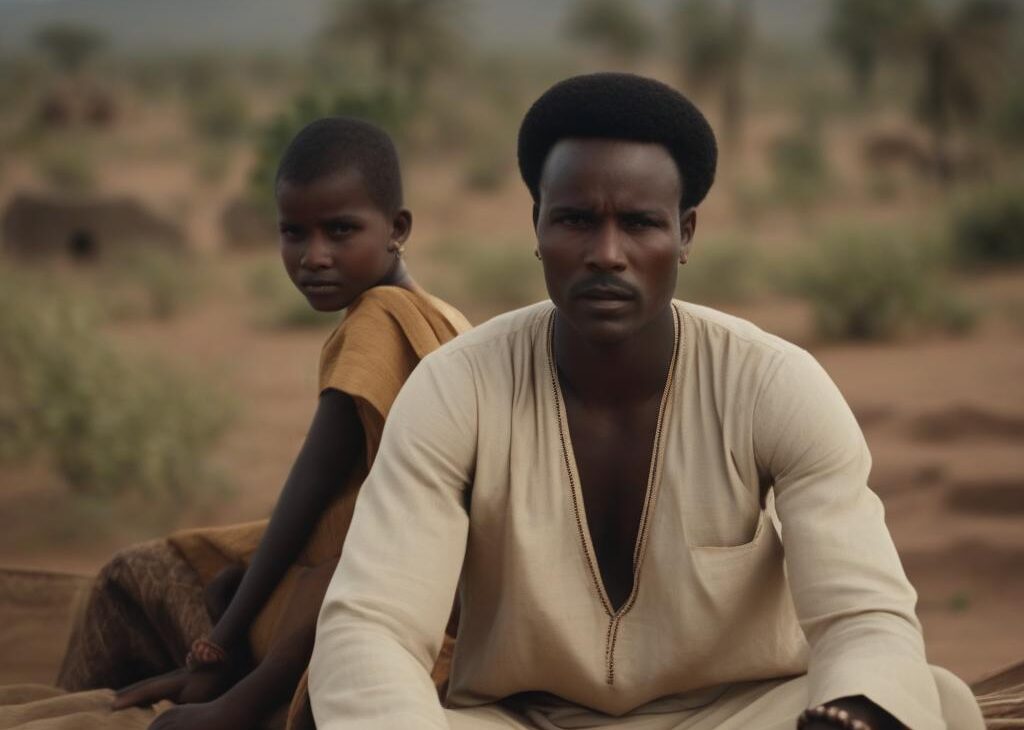-
Table of Contents
- A Far Cry from Africa: Exploring the Complexities of Colonialism and Identity
- The Historical Context of Colonialism in Africa
- An Analysis of “A Far Cry from Africa”
- 1. The Ambiguity of Identity
- 2. The Legacy of Violence
- 3. The Role of Language
- Q&A:
- 1. What is the main theme of “A Far Cry from Africa”?
- 2. What historical context does the poem address?
- 3. How does Walcott portray the legacy of violence in the poem?
- 4. What role does language play in “A Far Cry from Africa”?
- 5. What is the overall message of the poem?
- Conclusion
Introduction:
Colonialism has left an indelible mark on the history of many nations, shaping their identities and leaving a lasting impact on their cultures, economies, and social structures. One such nation is Africa, which experienced centuries of colonization by European powers. In his poem “A Far Cry from Africa,” the renowned poet Derek Walcott delves into the complexities of colonialism and its effects on personal and national identity. This article aims to explore the themes and messages conveyed in Walcott’s poem, providing valuable insights into the broader discourse surrounding colonialism and its aftermath.
The Historical Context of Colonialism in Africa
Before delving into the poem itself, it is crucial to understand the historical context in which it was written. Africa, a continent rich in diverse cultures and resources, became a target for European powers seeking to expand their empires during the 19th and 20th centuries. The Scramble for Africa, a period of intense colonization, saw European nations carve up the continent, imposing their political, economic, and cultural systems on the indigenous populations.
During this era, Africa experienced immense suffering and exploitation. Indigenous peoples were subjected to forced labor, land dispossession, and cultural assimilation. The effects of colonialism can still be felt today, as African nations grapple with the legacies of exploitation, underdevelopment, and social inequality.
An Analysis of “A Far Cry from Africa”
Derek Walcott, a poet of African and European descent, explores the complexities of his own identity and the impact of colonialism in his poem “A Far Cry from Africa.” The poem reflects on the Mau Mau uprising in Kenya, a violent resistance movement against British colonial rule. Through vivid imagery and powerful language, Walcott delves into the conflicting emotions and loyalties experienced by individuals caught between their African heritage and European influences.
1. The Ambiguity of Identity
Walcott’s poem grapples with the ambiguity of identity in a post-colonial world. He writes, “I who am poisoned with the blood of both, / Where shall I turn, divided to the vein?” These lines encapsulate the internal struggle faced by individuals of mixed heritage, torn between their African roots and the European influences that have shaped their lives.
Walcott’s personal experience of being of African and European descent allows him to explore this theme with authenticity and nuance. He highlights the complexity of identity, challenging the notion of a singular, fixed identity and emphasizing the fluidity and interconnectedness of different cultural influences.
2. The Legacy of Violence
The poem also delves into the legacy of violence left by colonialism. Walcott writes, “A wind is ruffling the tawny pelt / Of Africa, Kikuyu, quick as flies.” Here, he vividly portrays the violence and turmoil that characterized the Mau Mau uprising, drawing attention to the brutal methods employed by both the colonizers and the resistance fighters.
Walcott’s portrayal of violence serves as a reminder of the lasting scars left by colonialism. The poem raises important questions about the ethics of resistance and the long-term consequences of violent struggle. It prompts readers to reflect on the complexities of liberation movements and the challenges faced by post-colonial societies in healing and rebuilding.
3. The Role of Language
Language plays a significant role in “A Far Cry from Africa,” reflecting the power dynamics inherent in colonialism. Walcott writes, “A wind is ruffling the grasses, / Its laughter is a leash that tightens / On my throat.” These lines suggest the stifling effect of language, as the poet feels constrained by the linguistic and cultural dominance of the colonizers.
Walcott’s exploration of language highlights the importance of reclaiming and celebrating indigenous languages and cultures. It underscores the need for decolonization not only in political and economic spheres but also in the realm of language and cultural expression.
Q&A:
1. What is the main theme of “A Far Cry from Africa”?
The main theme of “A Far Cry from Africa” is the complexity of identity in a post-colonial world. The poem explores the internal struggle faced by individuals of mixed heritage, torn between their African roots and the European influences that have shaped their lives.
2. What historical context does the poem address?
The poem addresses the historical context of the Mau Mau uprising in Kenya, a violent resistance movement against British colonial rule. It reflects on the legacy of violence left by colonialism and raises questions about the ethics of resistance and the challenges faced by post-colonial societies.
3. How does Walcott portray the legacy of violence in the poem?
Walcott vividly portrays the violence and turmoil of the Mau Mau uprising, emphasizing the brutal methods employed by both the colonizers and the resistance fighters. His portrayal serves as a reminder of the lasting scars left by colonialism and prompts readers to reflect on the complexities of liberation movements.
4. What role does language play in “A Far Cry from Africa”?
Language plays a significant role in the poem, reflecting the power dynamics inherent in colonialism. Walcott explores the stifling effect of language, highlighting the need for decolonization not only in political and economic spheres but also in the realm of language and cultural expression.
5. What is the overall message of the poem?
The overall message of “A Far Cry from Africa” is the need to grapple with the complexities of identity and the lasting impact of colonialism. The poem calls for a nuanced understanding of history and a commitment to healing and rebuilding in post-colonial societies.
Conclusion
“A Far Cry from Africa” is a powerful exploration of the complexities of colonialism and its effects on personal and national identity. Through vivid imagery and thought-provoking language, Derek Walcott delves into the internal struggle faced by individuals caught between their African heritage and European influences. The poem also raises important questions about the legacy of violence, the role of language, and the challenges faced by post-colonial societies. By engaging with Walcott’s work, readers can gain valuable insights into the broader discourse surrounding colonialism and its aftermath, fostering a deeper understanding of the complexities of identity and the need for healing and reconciliation.







